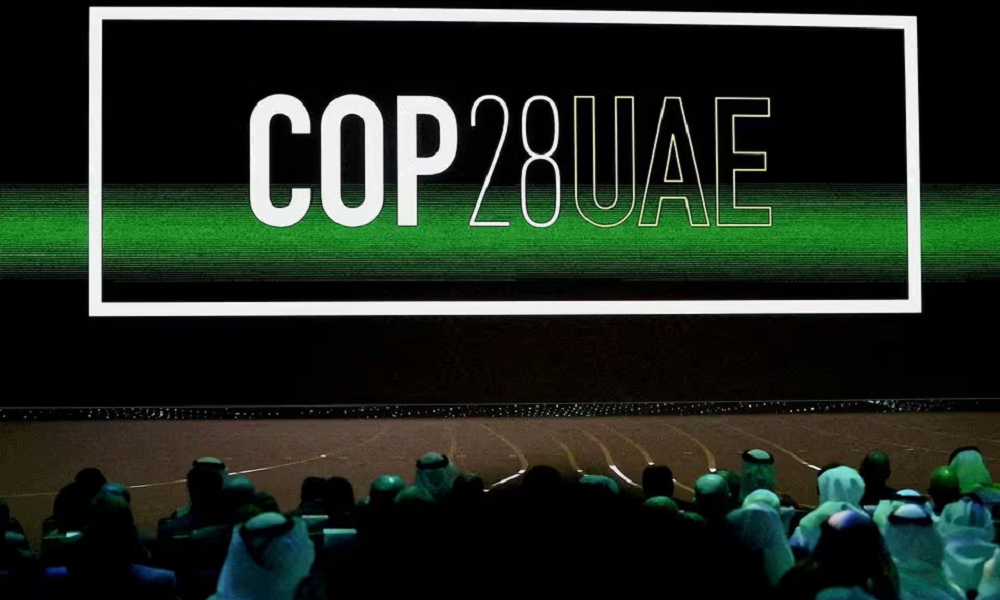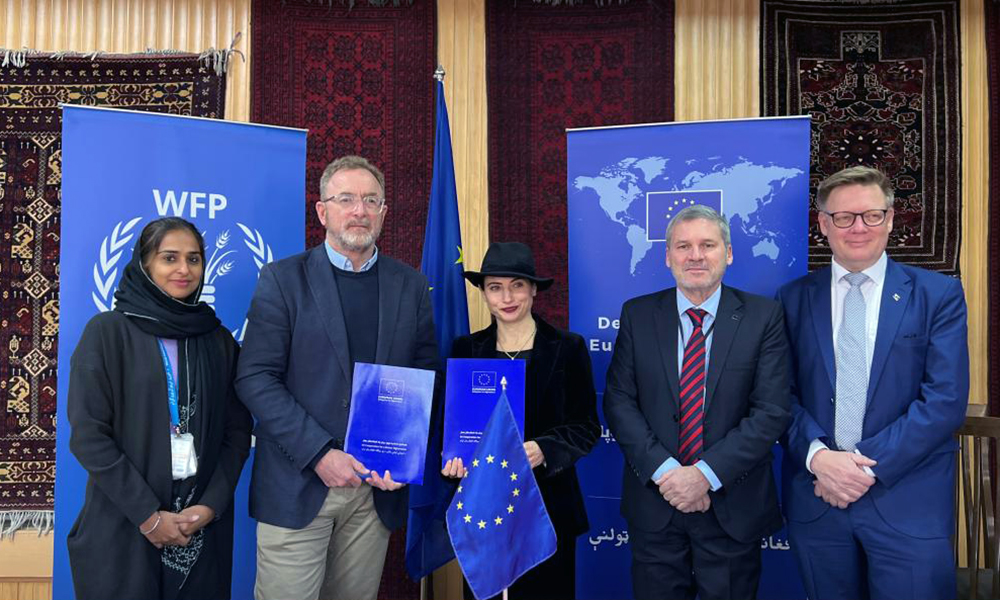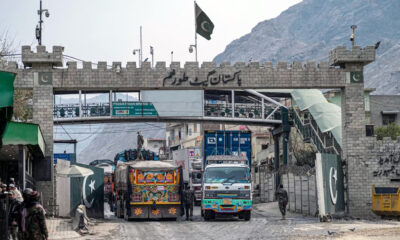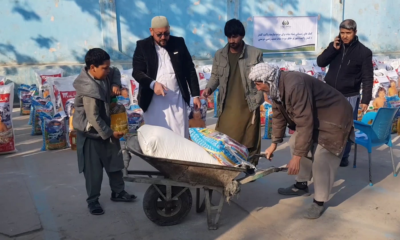Climate Change
Who’s who at this year’s COP28 climate talks, and what do they want?

As the world wrangles over its next steps in fighting climate change, each country has its own concerns and interests they hope to advance at this year's U.N. climate summit.
U.N. climate negotiations can only pass deals with unanimous support from all countries present. That makes finding consensus a daunting challenge.
Here are some of the main players and negotiating blocs involved in the COP28 conference starting Nov. 30 in Dubai, Reuters reports.
CHINA
China leads the world in both clean and dirty energy, with more renewable energy capacity and more coal consumption than any other country. Responsible for about 30% of annual global emissions, China is the world's biggest greenhouse gas emitter.
The country is also suffering climate change impacts, including heatwaves and flooding, as well as extreme drought.
In climate negotiations, Beijing argues that wealthy developed countries like the United States, the biggest historical CO2 emitter, should move first and fastest in climate policy and finance.
Despite having the world's second largest economy after the United States, China considers itself as a developing nation in the climate talks.
UNITED STATES
The world's second-biggest emitter comes to COP28 a year into rolling out its $369 billion-plus subsidy package for electric vehicles and other green products. The Inflation Reduction Act (IRA) is expected to triple the country's clean energy capacity by 2030.
The U.S. and European Union are now asking others to join a COP28 pledge to triple renewable capacity this decade.
The United States - the world's biggest oil and gas producer - also supports a COP28 deal calling to phase out CO2-emitting fossil fuel use.
But U.S. delegates will face pressure for climate finance after Washington pledged no new climate cash to the United Nations this year. The U.S. supports creating a new fund to help poor countries deal with climate-caused damage, but wants the deal to make clear no country will be obliged to pay into it.
EUROPEAN UNION
The 27-country EU's negotiating position for COP28 is among the most ambitious. The bloc will push for tripling renewable capacity, phasing out CO2-emitting fossil fuels, ending new coal-fuelled power plants and powering electricity grids with renewable sources in the 2030s.
The EU also wants countries to agree that technologies to "abate" - meaning capture - emissions will only be used sparingly. That sets up a clash between the EU and countries that are reliant on fossil fuels and see abatement technology as a way to prolong their use.
At the U.N. climate talks, the EU bloc is traditionally allied with climate-vulnerable small island states. But the EU is at odds with those allies over some details of the climate damage fund.
The EU wants China and other large economies to pay into the planned fund, which Beijing opposes.
UNITED KINGDOM
Despite leaving the EU in 2020, the United Kingdom comes to COP with similar asks to the bloc - including on phasing out fossil fuels and tripling renewable energy.
This year, however, London raised eyebrows among some climate diplomats by weakening some green policies and approving 27 licenses for oil and gas exploration. The UK government says it is still on track to meet its climate targets.
'BASIC' COUNTRIES
Brazil, South Africa, India and China make up this bloc of populous, fast-developing countries. Each has asked for more climate financing and equity through the United Nations Framework Convention on Climate Change (UNFCCC) concept of "common but differentiated responsibilities" – meaning rich countries that emitted the most historically should do more to address the problem.
India last year proposed widening a deal on phasing down coal to include oil and gas. It won backing from more than 80 countries, but Saudi Arabia and other oil and gas producers blocked it.
Brazil has spearheaded negotiations on rules for carbon credit markets, through which it plans to monetise its vast forests.
South Africa secured a 2021 deal for $8.5 billion from the EU, United States and other nations to help its shift from coal to renewable energy. But the country now is facing its worst power crisis, with rolling blackouts and ageing coal plants frequently breaking down.
OTHER NEGOTIATING BLOCS:
G77 + CHINA
This alliance of 77 developing countries and China also holds that rich countries have a bigger responsibility to cut CO2 than poorer nations. A key question this year is whether the G77 will stick together as smaller climate-vulnerable nations seek urgent climate action, while larger members like China are wary of rapid CO2 cuts.
AFRICAN GROUP OF NEGOTIATORS
African countries will be pushing at COP28 for climate finance and financial mechanisms to speed up green energy projects.
Some African countries including Kenya, Ethiopia and Senegal have backed calls for phasing out fossil fuel production. But others like Mozambique want to develop their reserves of gas - both to boost their energy capacity and to capitalise on European gas demand. Any deal on phasing out fossil fuels, the group says, must allow poor nations to develop reserves in the short term to alleviate energy poverty.
ALLIANCE OF SMALL ISLAND STATES
The alliance, known by its acronym AOSIS, represents countries that are disproportionately vulnerable to climate effects including sea level rise.
The group's front-line experiences lend its members an influential position in COP talks, where its priorities include securing loss and damage finance and phasing out fossil fuel use to limit global warming to 1.5 Celsius - a threshold beyond which island nations face catastrophic climate impacts.
HIGH AMBITION COALITION
Chaired by the Marshall Islands and including Vanuatu, Costa Rica, the United States and the European Union, this group pushes for more ambitious emissions targets and policies - among them, this year, halting new coal plants and peaking the world's emissions before 2025.
LEAST DEVELOPED COUNTRY GROUP
This group's 46 nations are highly vulnerable to climate change but have contributed little to it. Aside from demanding that loss and damage be addressed, the LDCs want rich nations to double their financing for climate adaptation.
INDEPENDENT ALLIANCE OF LATIN AMERICA AND THE CARIBBEAN
The AILAC bloc is aligned with other developing countries in demanding greater climate ambition and more funding.
Climate Change
EU pledges €15 million to WFP to help mitigate climate crisis impact on Afghans

The United Nations World Food Programme (WFP) has welcomed a €15 million (US$15.8 million) contribution from the European Union (EU) for its climate related activities in Afghanistan.
According to a statement issued by the EU on Thursday, this contribution will help local communities prepare for natural disasters and face the devastating effects of climate change, and support farmers for more productive and sustainable agriculture.
So far this year, more than 160,000 people have been affected by flooding in Afghanistan. Floods have destroyed almost 20,000 homes, and thousands of hectares of agricultural land.
“The European Union is committed to assisting the people of Afghanistan in adapting to climate change, which is severely threatening food security and livelihoods notably of rural communities, said the EU Chargée d’Affaires to in Afghanistan, Veronika Boskovic Pohar.
“Climate-related shocks also exacerbate host communities’ capacity to support internally displaced people and returnees from neighboring countries, and they discourage farmers in poppy-cultivating areas from sustainably shifting to licit crops.
“This latest contribution increases the European Union’s steady support to WFP’s resilience programme in Afghanistan to a total EUR 85.1 million since 2022”, she said.
Harald Mannhardt, WFP Deputy Country Director in Afghanistan, said: “This latest funding from the European Union comes at a critical moment as WFP earlier this year was forced to halt projects across the country due to a massive funding shortfall.”
Afghanistan is currently ranked seventh on the Notre Dame Global Adaptation Index of countries most vulnerable and least prepared to adapt to climate change.
Climate Change
Malaysia records six months of rain in just five days
One of the worst hit areas was Kelantan which recorded 1,442mm of rain between November 26 and 30

Six months worth of Malaysia’s average annual rainfall fell within five days across the east coast of the country last week, Prime Minister Datuk Seri Anwar Ibrahim said early Tuesday.
One of the worst hit areas was Kelantan which recorded 1,442mm of rain between November 26 and 30.
Ibrahim said the high rainfall led to flooding that forced a large number of people in Kelantan and Terengganu to be evacuated.
The recorded rainfall at Irrigation and Drainage Department stations in Tanah Merah and Tumpat, exceeded 1,167mm in just five days.
“According to the Malaysian Meteorological Department (MetMalaysia), the reading (in Kelantan) was at 1,442mm, an extraordinarily high level of rainfall. In Terengganu, MetMalaysia’s Besut station recorded 1,761mm of rain during the same period.
“Overall, the (average) rainfall was 1,349mm, far beyond our expectations,” Anwar told the Dewan Rakyat (Parliament) on Tuesday.
He also said the government is preparing for the forecast monsoon surge as announced by MetMalaysia, expected to start after Dec 8.
By Tuesday, some residents in the town of Tumpat were returning to submerged homes and shops as deadly floodwaters eased in some areas.
People who returned to their homes found many had collapsed, with parts of walls, roofs and broken furniture lying scattered in pools of water.
Muhamad Alim, a 56-year-old shopkeeper whose food store was inundated, recalled fast-rising waters in his home and his grandchildren crying as the flood surged on Saturday night.
"Electricity was cut off, and there was no water supply. So, we were stuck, sitting there as if we were in the middle of the sea, surrounded by water," he told Reuters.
"You could hear the sound of water rushing cutting through the silence of the night."
Six people have died in Malaysia and more than 150,000 were evacuated during the height of the floods last week, government data showed.
In Thailand, the death toll is 25, and more than 300,000 households were still affected, the interior ministry said.
The number of people in temporary shelters in Malaysia fell to just under 95,000 on Tuesday morning, though the authorities remain on guard for a second wave of floods this week.
Malaysia's Meteorological Department expects a wind convergence to begin on Tuesday, potentially bringing heavy showers, with a monsoon surge to follow on Dec. 8.
In Thailand, the Meteorological Department warned people in the south of the country to beware of heavy to very heavy rains and possible flash flooding and overflows from Dec. 3-5.
Climate Change
Malaysia and Thailand brace for second wave of heavy rain and possible flooding
Authorities say these have been the worst floods in decades, resulting in the death of at least 27 people across the two countries.

Malaysia and Thailand are facing a second wave of heavy rain and potential flooding this week, authorities said Monday following days of torrential rain that caused massive flooding in northern Malaysia and southern Thailand.
Authorities say these have been the worst floods in decades, resulting in the death of at least 27 people across the two countries.
Malaysia alone was forced to evacuate over 150,000 people on Sunday and rivers burst their banks and water levels steadily increased.
By Monday, authorities said the immediate situation had improved in some areas and water levels had eased but weather experts warned that more rain and possible floods were forecast again for Wednesday.
The northeastern state of Kelantan, which has been the worst hit, was also expected to face a fresh deluge from Wednesday, December 4.
-

 Business5 days ago
Business5 days agoDaily truck clearances at Torkham drop from 400-500 to 5-10
-

 Latest News4 days ago
Latest News4 days agoAfghanistan seals T20I series victory over Zimbabwe
-

 Sport5 days ago
Sport5 days agoLanka T10: Jaffna Titans’ skipper advocates for format to expand globally
-

 Latest News5 days ago
Latest News5 days agoIran says it spends over $10 billion annually on Afghan refugees
-

 World4 days ago
World4 days agoSyrian clerics in former Assad stronghold call for national unity, democracy
-

 Latest News4 days ago
Latest News4 days agoU.S. sentences Afghan man to 30 years in prison for narco-terrorism and witness tampering
-

 Latest News5 days ago
Latest News5 days agoDAB has collected over 7 billion Afghanis in worn-out banknotes over past year
-

 International Sports3 days ago
International Sports3 days agoMessi vs Ronaldo: A look at their market values over the years


























